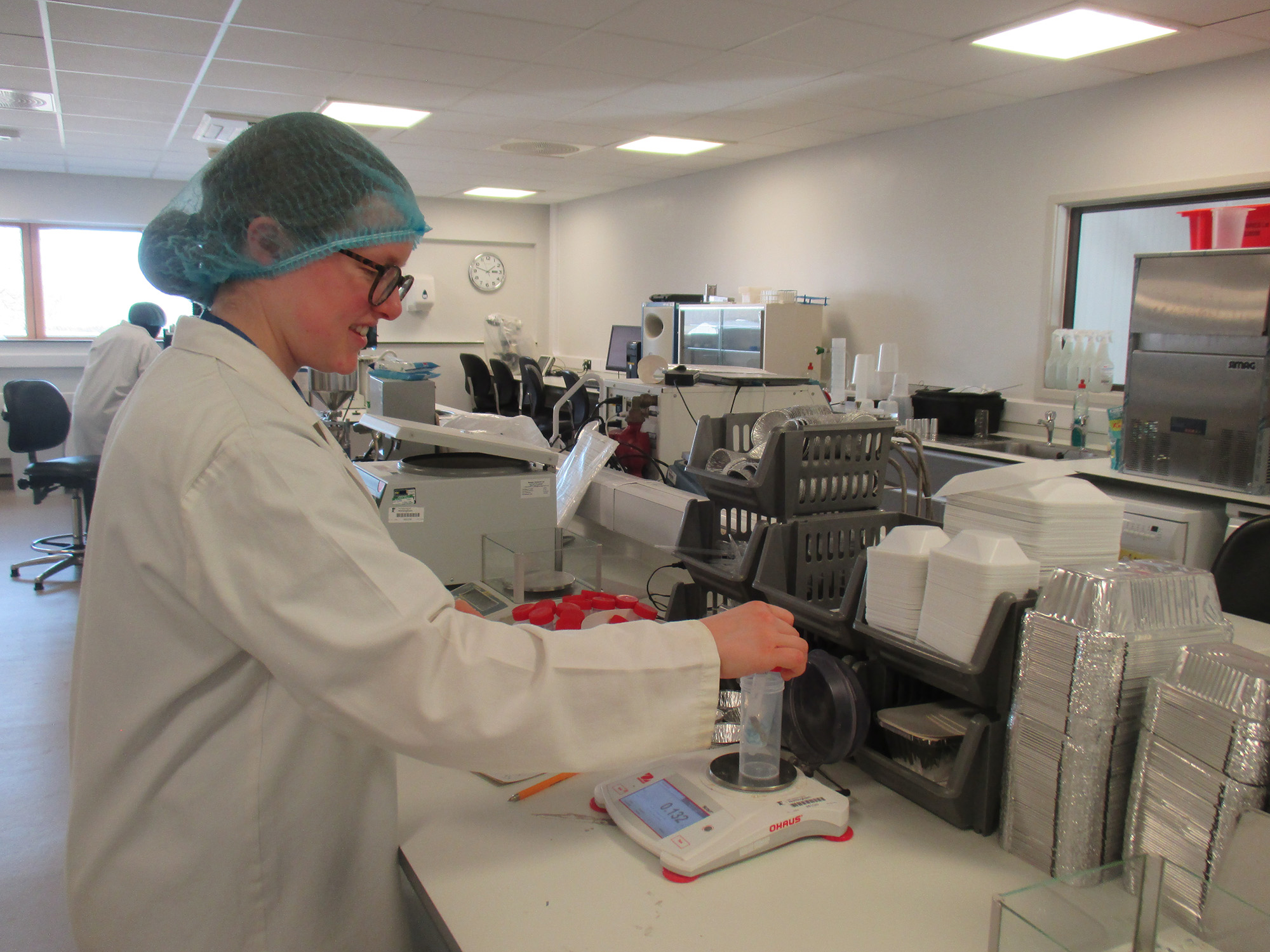

BioMara’s Seafibrex shows promise as seaweed-based fiber for healthier sausages, burgers, and bread
Technologists at the University of Nottingham’s Food Innovation Centre (FIC), working with marine biotechnology company BioMara, completed a series of trials that tested a novel seaweed-derived fiber in three everyday food formats: pork sausages, vegan burgers, and gluten-free bread.
The ingredient, branded as Seafibrex, was evaluated under Innovate UK’s “Better Food for All” program, which supports reformulation technologies designed to improve nutrition without requiring consumers to change their eating habits.
Seafibrex is a patent-pending functional fiber extracted from sustainably cultivated brown seaweed (Alaria esculenta) using BioMara’s proprietary process. Rich in dietary fiber and marine polysaccharides, the ingredient was assessed for its impact on texture, water retention, cooking performance, and sensory qualities across different applications.

Jessica Gray, Food Technologist at the University of Nottingham, said the trials were designed to test whether Seafibrex could maintain product quality while supporting salt and fat reduction strategies. “The primary focus of this work was to assess the functional properties of Seafibrex when incorporated into common food matrices and evaluate the impact it had on the moisture and oil retention, structure, texture and flavour of the products,” she said. “In many cases, Seafibrex delivered comparable or improved results versus traditional ingredients. It was particularly effective at delivering mouthfeel and flavour in reduced-fat and reduced-salt applications, meaning Seafibrex shows real potential for reformulation projects involving salt and fat reduction.”
In pork sausages, inclusion levels of 2.5%, 5%, and 10% were tested, including reduced-fat and reduced-salt recipes. The lowest level, 2.5%, was identified as the most viable from both sensory and processing perspectives, supporting moisture retention without negatively affecting flavor or texture. Cooking tests showed that Seafibrex helped reduce oil loss, particularly at 5% inclusion. A reduced-fat formulation made with 50% less pork belly and 5% Seafibrex retained more moisture and performed well in sensory evaluations, pointing to opportunities for healthier sausage options. Gray said the findings were encouraging. “Seafibrex enabled greater water holding in reduced-fat formulations, which is critical for maintaining juiciness and delivering flavour in reduced-fat sausages,” she said.
The vegan burger trials explored Seafibrex as a potential replacement for methylcellulose and pea fiber. At a 2.5% addition level, it retained good texture and moisture while avoiding “fishy” flavor notes sometimes associated with seaweed ingredients. At 5%, it enhanced water binding and supported a 50% reduction in oil content without compromising structure. These outcomes suggested that Seafibrex could provide clean-label advantages by reducing reliance on synthetic binders, a continuing challenge for manufacturers of plant-based meat alternatives.

The gluten-free bread tests compared Seafibrex with hydrocolloids such as psyllium husk and carboxymethylcellulose (CMC). Loaves containing 2% Seafibrex, added directly to dry ingredients, performed comparably to those with psyllium husk in terms of structure, volume, and texture, with no noticeable marine taste. Pre-hydration of Seafibrex before baking was tested but found unnecessary, simplifying production. At 2%, the ingredient produced a more open, sourdough-style crumb, which the researchers noted could be advantageous for certain formulations. Gray said Seafibrex’s ability to help create and maintain structure in gluten-free bread was significant. “Seafibrex’s ability to create and maintain structure in gluten-free systems is particularly valuable given the challenges associated with clean-label gluten-free bakery reformulation,” she said.
Taken together, the trials demonstrated that Seafibrex could play a versatile role in reformulation projects aimed at improving public health outcomes. The ingredient was shown to increase fiber content in mainstream foods while enabling reductions in fat and salt. It also offered an alternative to common binders such as methylcellulose in plant-based applications and supported the creation of structure and texture in gluten-free bakery recipes. Importantly, these benefits were achieved without compromising consumer acceptance on taste or texture, which remains a critical barrier in reformulation initiatives.
The Nottingham study built on earlier work conducted with Abertay University and bakery supplier Macphie, which had already demonstrated Seafibrex’s effectiveness in muffins and standard bread applications. The broader body of research now suggested that the ingredient had applications across meat, plant-based, and bakery categories, giving it relevance for manufacturers in several different sectors.
This latest research formed part of an Innovate UK-funded effort to develop solutions that support healthier eating without requiring changes in consumer behavior. BioMara supplied Seafibrex and technical background, while the University of Nottingham’s Food Innovation Centre carried out the design, formulation, and analysis of the trials. By demonstrating that a naturally derived, seaweed-based ingredient can maintain or even improve product quality while addressing public health goals, the collaboration pointed to new opportunities for manufacturers to rethink the nutritional profile of everyday foods.
If you have any questions or would like to get in touch with us, please email info@futureofproteinproduction.com


-p-800.jpg)



